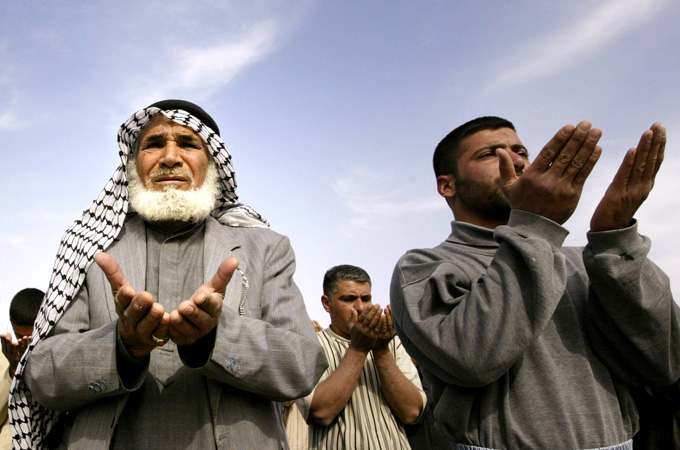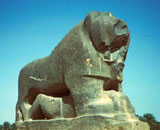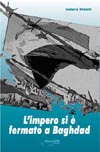
Iraq: The forgotten 'nakba'
Why has the plight of Iraq failed to capture the imagination and interest of the Arab world?
September 7, 2010 - The US invasion of Iraq marked a dramatic turning point for the Arab world, but the recent partial American withdrawal generated notably little interest across the region. This is partly because it signaled neither an unequivocal end to the occupation nor an explicit continuation of US military control. But the silence also reflects the bitter reality that many have simply tuned out of Iraq. When Baghdad fell in 2003, it drew comparisons with the loss of Palestine and the dispossession of its people in 1948. And while the US invasion did not lead to, or aim at, colonising the country, changing its name or razing its towns and villages, it did serve to remove a once powerful state from the regional political equation and, in so doing, weakened the Arab world. This emboldened Israel and Iran, while striking a critical blow against pan-Arabism. On both the official and popular level, Arabs failed to connect with and support the Iraqi people...If they do not, the US will have achieved one of the aims of the war - the weakening of pan-Arab solidarity - and Iraqis will continue to feel, as one recently told me, that "nothing we do seems to capture the Arab imagination and we feel far from the Arab world"...
[69552]
|
Uruknet on Alexa
>
:: Segnala Uruknet agli amici. Clicka qui.
:: Invite your friends to Uruknet. Click here.

:: Segnalaci un articolo
:: Tell us of an article
|
|
Iraq: The forgotten 'nakba'
Why has the plight of Iraq failed to capture the imagination and interest of the Arab world?
Lamis Andoni
 |
September 7, 2010
The US invasion of Iraq marked a dramatic turning point for the Arab world, but the recent partial American withdrawal generated notably little interest across the region. This is partly because it signaled neither an unequivocal end to the occupation nor an explicit continuation of US military control. But the silence also reflects the bitter reality that many have simply tuned out of Iraq.
When Baghdad fell in 2003, it drew comparisons with the loss of Palestine and the dispossession of its people in 1948. And while the US invasion did not lead to, or aim at, colonising the country, changing its name or razing its towns and villages, it did serve to remove a once powerful state from the regional political equation and, in so doing, weakened the Arab world. This emboldened Israel and Iran, while striking a critical blow against pan-Arabism.
On both the official and popular level, Arabs failed to connect with and support the Iraqi people.
In the immediate wake of the invasion, Arab governments appeared confused. Some initially played to popular sentiment and looked to boycott the newly-installed American-backed government before eventually bowing to US pressure.
A country that had once helped to support others suddenly became an economic burden to its neighbours as hundreds of thousands of refugees fled into Syria and Jordan. Baghdad lost its status as an educational centre and cultural hub for Arab intellectuals, artists, poets and novelists.
The tragic shift in its position left many Iraqis feeling like the formerly wealthy relation who lost their fortune only to find that their friends and family had disappeared along with it.
Comparisons with Palestine
The Iraqi resistance too found little support, with few appreciating that it had foiled - or at least delayed - further wars in the region: A point that was not lost on Bill Clinton, the former US president, who acknowledged in 2006 that were it not for the fact that the US army was tied up in Iraq, it would have invaded other countries.
And as the line between resistance and sectarian violence became increasingly blurred and the association between al-Qaeda and the resistance more prominent, Arabs began to switch off. But even at its height, the Iraqi resistance had failed to capture the Arab imagination in the way the Palestinian resistance had several decades earlier.
This is reflective of much broader trends. The 1950s witnessed the emergence of a pan-Arab nationalism that encouraged solidarity with the Palestinians. And although the Arab nationalists ultimately failed - culminating in their defeat in the 1967 Arab-Israeli war - the Palestinian resistance found a natural political sanctuary in a revolutionary atmosphere infused with pan-Arabism and anti-colonialism.
In contrast, the Iraqi resistance came during an era of total American hegemony - with most Arab states either backed by the US or seeking to accommodate it, lest they incur its wrath.
But, while the Palestinian cause may have secured its place in the Arab psyche, the reaction of Arab governments to the Iraq invasion was merely a continuation of the same impotence that has marked the region since 1948. After all, for all their lamenting over the loss of Palestine, the Arab world has proved itself totally incapable or unwilling to stand up to Israel.
An interfering neighbour
Iran's role in Iraq further confused the picture in a way many Arab intellectuals have failed to adequately critique. Swayed by its backing of Hezbollah, the most respected and effective resistance movement in the region, many Arabs are reluctant to objectively analyse how Iran has adversely affected the forces of Iraqi resistance.
Like the US, who fanned the country's Sunni-Shia rift by presenting the war as, in part, an effort to free the distressed Shia majority from Sunni hegemony, Iran has also stirred up sectarian divisions by directly sponsoring sectarian Shia parties inside the country.
Many Iraqis feel that Iran used the sectarian governments of Ibrahim al-Jaafari and later Nuri al-Maliki to suppress all forms of resistance but point to Iyad Allawi's victory in the March elections as evidence of Iraqi desire to reject sectarianism.
While some Arabs have written Allawi off as an American puppet - and his record is greatly marred by his collaboration with the invasion - Iraqi writer Abdul Elah al-Bayati called the election result "a triumph against sectarianism" and said it should be seen not as a win for Allawi but for the coalition he represents.
The former Baathist who turned his back on Saddam Hussein 'reinvented' himself as a secular leader and won the elections with broad popular backing. And while those close to the resistance say they have not forgotten that in 2004 he endorsed the American bombing of Falluja, they understand why some may consider the Shia politician with close ties to Arab regimes to be the best man to prevent the country disintegrating along ethnic and sectarian lines.
But with a new government still not formed six months after the elections, the Arab world seems reluctant to engage in any serious debate about the country's future. Perhaps Iraq's plight is too painful for Arabs to acknowledge or maybe the crisis there is too complex to comprehend. But the battle for Iraq's independence is far from over and Arabs must now step up to play their role in it.
If they do not, the US will have achieved one of the aims of the war - the weakening of pan-Arab solidarity - and Iraqis will continue to feel, as one recently told me, that "nothing we do seems to capture the Arab imagination and we feel far from the Arab world".
Lamis Andoni is an analyst and commentator on Middle Eastern and Palestinian affairs.
The views expressed in this article are the author's own and do not necessarily reflect Al Jazeera's editorial policy.
|
|
:: Article nr. 69552 sent on 07-sep-2010 16:06 ECT
www.uruknet.info?p=69552
Link: english.aljazeera.net/indepth/2010/09/2010967352979398.html
:: The views expressed in this article are the sole responsibility of the author and do not necessarily reflect those of this website.
The section for the comments of our readers has been closed, because of many out-of-topics.
Now you can post your own comments into our Facebook page: www.facebook.com/uruknet


[ Printable version
] | [ Send it to a friend ]
[ Contatto/Contact ] | [ Home Page ] | [Tutte le notizie/All news ]
|
|

Uruknet on Twitter

::
RSS updated to 2.0

:: English
:: Italiano

::
Uruknet for your mobile phone:
www.uruknet.mobi
Uruknet on Facebook

The newsletter archive
:: All events
|

















